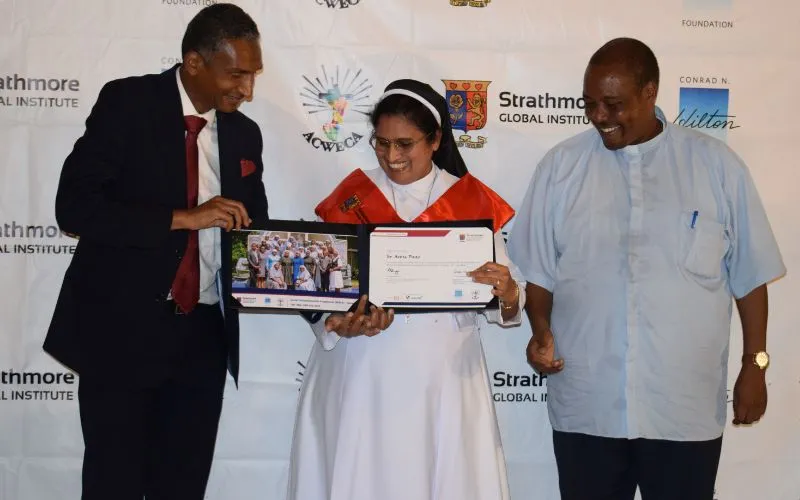 Credit: ACWECA
Credit: ACWECA
The graduation at the Serena Hotel in Dar es Salaam in Tanzania was the second in the series of graduations that ACWECA and the Strathmore Global Institute have organized in the four African countries, where the Catholic Sisters’ Social Entrepreneurship Program is being implemented.
20 Catholic Sisters in Uganda graduated in the program at a ceremony that was held on September 4 at Speke Resort Munyonyo in the outskirts of Uganda’s capital city, Kampala.
The next graduation is to be in Kenya on September 27, and finally in Zambia at a date to be communicated later.
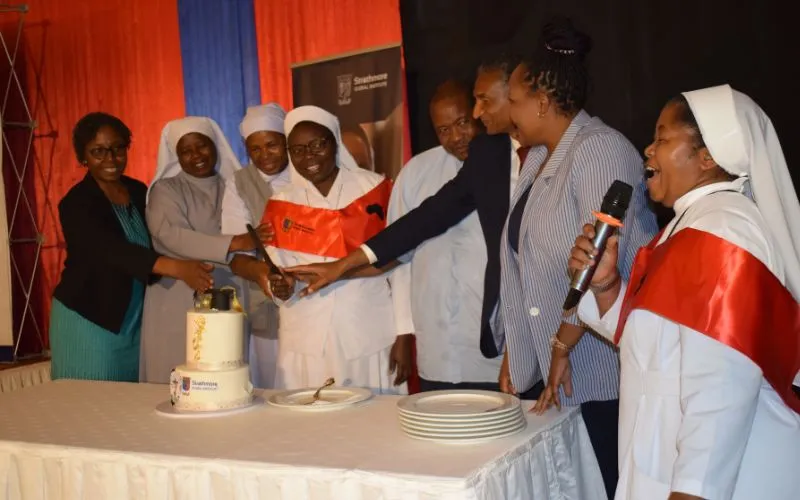 Credit: ACWECA
Credit: ACWECA
(Story continues below)
According to the implementers, the project aims to improve the Catholic Sisters’ capacities, connect them to networks and provide them with information hubs, as well as robust financial services.
This initiative comes after a survey that Hilton Foundation commissioned in early 2021 revealed challenges women Religious face in their ministries such as a lack of funding, inadequate leadership skills, and financial and organizational sustainability. The project aims to address these challenges by providing skills, networking opportunities, and resources for continued opportunities in social enterprises.
In his keynote address, Fr. Kitima urged female ICLSAL in Tanzania to invest in the younger members, who he said are gifted in ways that can benefit their communities.
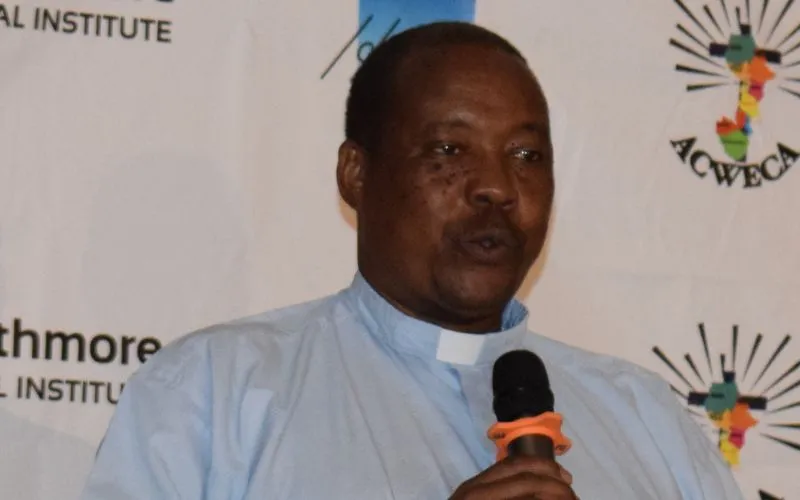 Fr. Charles Kitima. Credit: ACWECA
Fr. Charles Kitima. Credit: ACWECA
“Here, we have more than 100 Sisters' Congregations, all of them with very gifted young Sisters. The problem is that the Congregations have refused to think outside the box,” he said.
“Congregations of Sisters must shake off their poverty mentality,” the official of TEC said, and added, “There is no way you can evangelize and realize your charisms without money. And there is money everywhere for anyone who has an entrepreneurial mindset.”
Fr. Kitima also urged the Sisters to only select enterprising Sisters to be in charge of their enterprises, saying, “Do not elect people who are only interested in enriching themselves. The money you fundraise should be solely for the Congregation.”
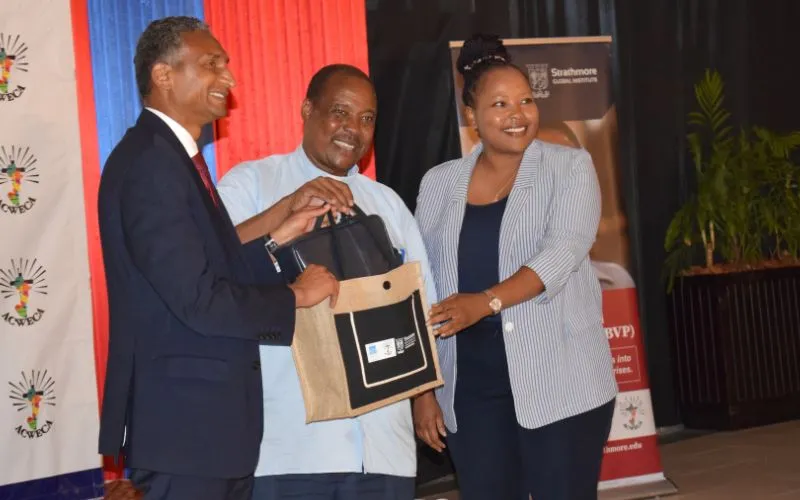 Credit: ACWECA
Credit: ACWECA
The Tanzanian Catholic Priest shared with the Sisters the lessons he learnt as the Vice Chancellor (VC) of St. Augustine University of Tanzania (SAUT), a position he served for 10 years.
Accepting the role at just 38 years old, “the youngest VC at the time” gathered skills in fundraising, networking and focusing on quality education. These skills, Fr. Kitima said, saw him accomplish everything that the university had set to achieve in a very short time. In just five years of his term, Fr. Kitima achieved what the university was supposed to achieve in 20 years.
At his election as VC at the university that TEC established in 1998, Fr. Kitima knew that he did not have time to waste. He said, “We were in competition with the biggest universities in the region. I visited top universities in the world to learn about sustainability.”
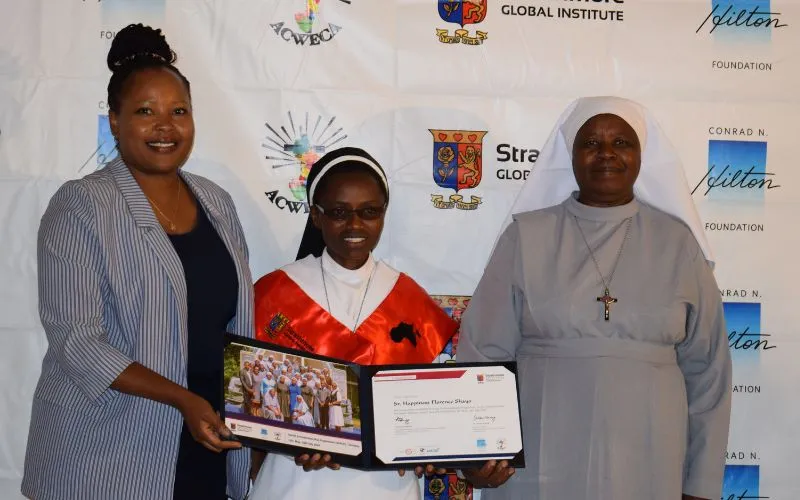 Credit: ACWECA
Credit: ACWECA
“I also took time to learn the Jesuits' model of investing in quality teaching staff, relevant programs for the society as well as the centralization of Catholic education,” he said, adding that the most critical thinkers such as the late Prof. George Magoha of Kenya were his best friends from whom he learnt how to succeed in the education sector.
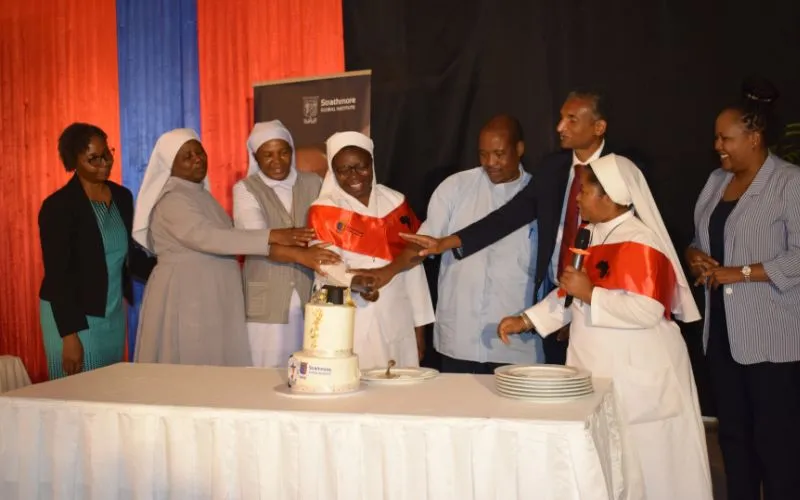 Credit: ACWECA
Credit: ACWECA
Fr. Kitima’s innovativeness transformed SAUT into one of the best in the region, attracting staff from outside Tanzania, who made the Catholic-sponsored institution of higher learning even more attractive to parents in the East African country.
Agnes Aineah is a Kenyan journalist with a background in digital and newspaper reporting. She holds a Master of Arts in Digital Journalism from the Aga Khan University, Graduate School of Media and Communications and a Bachelor's Degree in Linguistics, Media and Communications from Kenya's Moi University. Agnes currently serves as a journalist for ACI Africa.
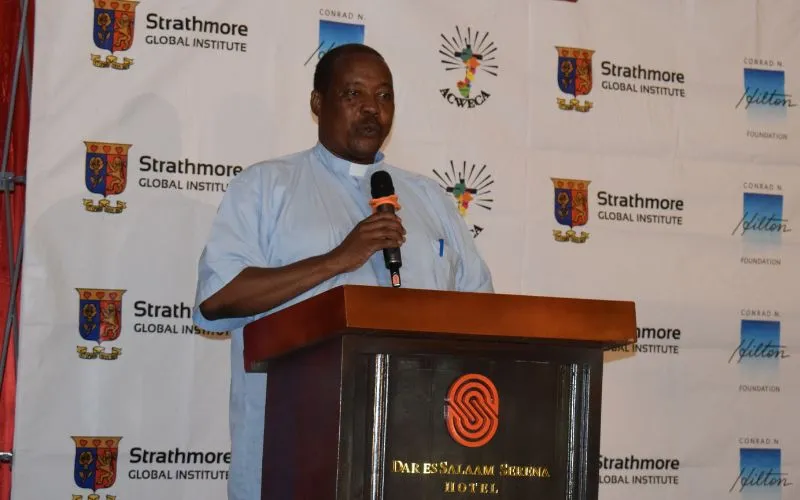 Fr. Charles Kitima. Credit: ACWECA
Fr. Charles Kitima. Credit: ACWECA


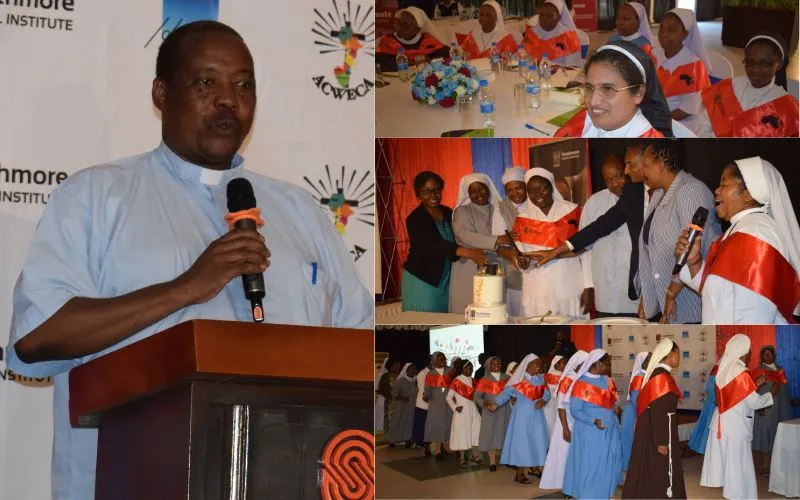
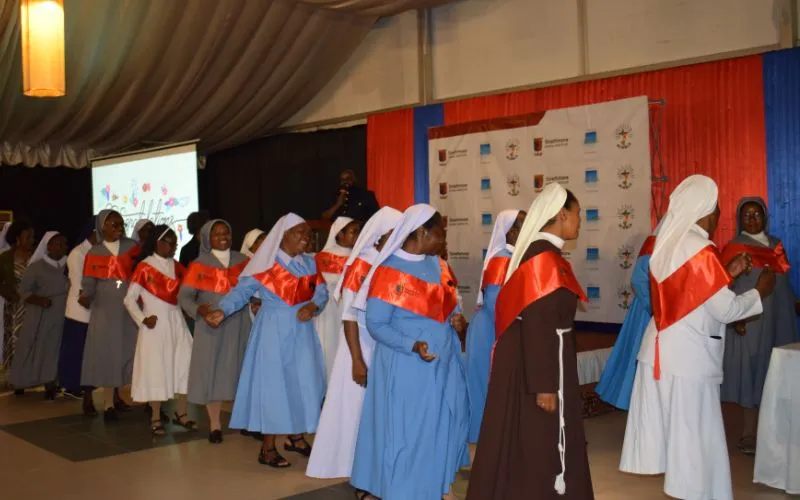 Credit: ACWECA
Credit: ACWECA
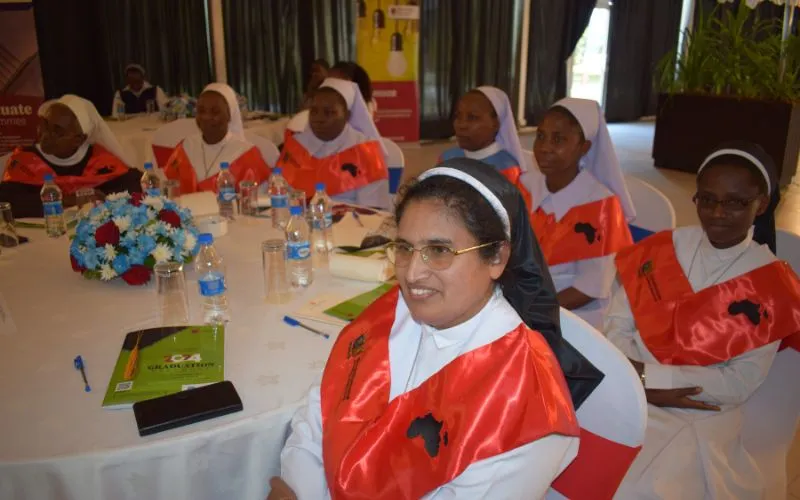 Credit: ACWECA
Credit: ACWECA Credit: ACWECA
Credit: ACWECA Credit: ACWECA
Credit: ACWECA Fr. Charles Kitima. Credit: ACWECA
Fr. Charles Kitima. Credit: ACWECA Credit: ACWECA
Credit: ACWECA Credit: ACWECA
Credit: ACWECA Credit: ACWECA
Credit: ACWECA


